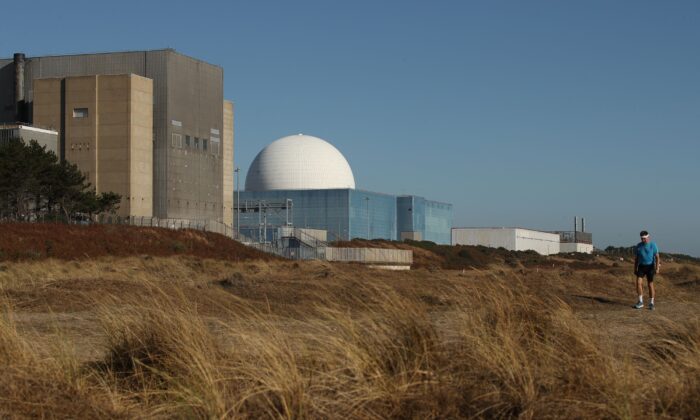Amid concerns about energy security, a pro-nuclear coalition in the European Union is advocating for the resurgence of nuclear energy. The alliance, led by France and consisting of 12 nations, aims to prioritize nuclear power as a key component of the EU’s energy strategy. This push comes in response to the ongoing Ukraine-Russia conflict and the EU’s commitment to reducing greenhouse gas emissions by 55% by 2030.
The European Nuclear Alliance, established in February 2023, is advocating for nuclear energy as a solution to Europe’s energy challenges. The alliance includes countries like Bulgaria, Croatia, and Finland, among others, and has called on EU ministers to prioritize atomic power as part of the bloc’s net zero goals.
Experts suggest that while there is a growing recognition of the importance of nuclear energy in Europe, reviving the sector may take time due to its decline over the years. European leaders have traditionally focused on renewable energy sources, but there is now a shift towards acknowledging the need for more nuclear power. European Commission President Ursula von der Leyen has emphasized the importance of nuclear energy amid the energy crisis in Europe.
With renewed interest in nuclear energy, experts predict that funding for nuclear projects will increase. This shift in attitude towards nuclear power is attributed to a newfound realization of the importance of secure energy supplies. Companies like Amazon, Google, and Microsoft have already announced deals to power their data centers using nuclear energy, signaling a growing interest in nuclear projects.
Political theorist Ralph Schoellhammer believes that embracing nuclear power is crucial for Europe’s energy transition and economic competitiveness. Without nuclear energy, Europe risks falling behind in the global energy market and missing out on the opportunity for a prosperous future. Schoellhammer is optimistic about a new era of nuclear energy but warns that Europe must embrace nuclear power to stay competitive in the evolving energy landscape. Electricity prices in the United States allow industries to produce goods more affordably than in Europe, where energy costs are higher. This discrepancy poses a challenge for European industries trying to compete in the global market.
In a report on EU competitiveness, former European Central Bank chief Mario Draghi emphasized the need for the EU to address its elevated energy prices. With the loss of access to cheap Russian gas, the EU faces a potential economic decline if action is not taken.
Draghi stressed the importance of adapting to remain competitive with countries like the United States and China. He highlighted nuclear power and renewables as key components of Europe’s energy strategy.
Despite calls for change, skepticism remains in countries like Germany, which have long opposed nuclear energy. Germany, along with other European nations, has shifted towards renewable energy sources like wind and solar.
France, on the other hand, has a strong nuclear power program, generating a significant portion of its electricity from nuclear sources. However, concerns about safety and environmental impacts persist in light of past nuclear disasters.
The EU’s focus on renewables is likely to continue under the leadership of Teresa Ribera, who supports the closure of nuclear power plants in Spain. However, there is a growing interest in small modular reactors (SMRs) as a more adaptable and cost-effective nuclear energy solution.
The EU has launched initiatives to accelerate the development of SMRs, with the goal of deploying the technology across the continent by the early 2030s. This shift towards SMRs reflects a broader interest in revitalizing the nuclear energy sector in Europe.
While the road to widespread SMR deployment may be long, the EU’s commitment to nuclear energy signals a potential resurgence in the sector. Standardizing viable SMR designs and ensuring regulatory compliance will be key to the success of these initiatives.
Overall, the EU maintains a technology-neutral approach to energy development, respecting the diversity of energy mixes within its member states. The focus remains on promoting sustainable, safe, and secure energy solutions to meet the EU’s climate and energy goals. Can you please rephrase this sentence?
Source link





